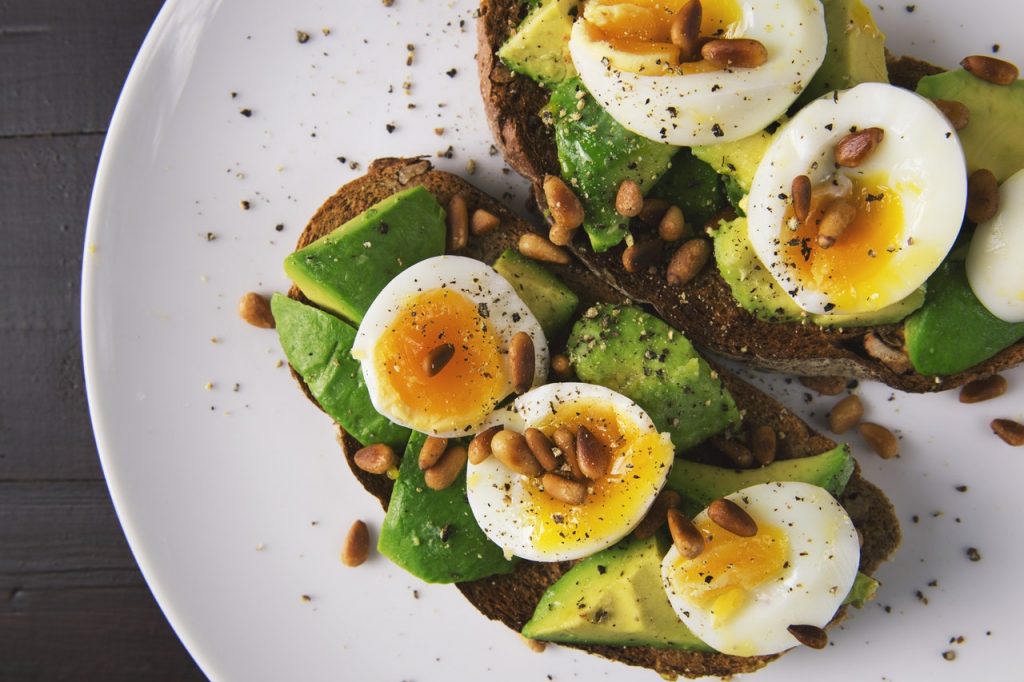This post contains affiliate links. Click here to read my affiliate policy.
Last Updated on April 12, 2021

How to Balance Out Your Diet During Intense Study Periods
College can be a stressful time. Especially around exam time, the energy that goes into studying can seem all-encompassing. However, it is also crucial that students remember to take care of themselves during these stressful times.
While students might not have time to hit the gym or stay active during intense study periods, they can take a few simple steps to balance their diet during this time.
Breakfast Is Key
Almost everyone has been told their whole life that breakfast is the most important part of the day and this is true! Before you crack open a book or start looking around for last nights notes, a healthy breakfast is key.
The key word here is healthy. While a stack of pancakes might taste great, it won’t help a student stay charged and focused throughout the day. Instead, try a breakfast full of whole grains and protein. However, in some cases, we get sick due to weather changes or due to a virus. In these situations, students can get academic assistance from qualified professionals to help them to keep up with class materials while they are fighting the flu.
Use Smaller, More Frequent Meals
This is a tip that comes with many different diets. Aside from breakfast, try eating smaller meals more frequently rather than focusing on a few huge meals a day. Think of it this way: if a student eats smaller, healthier meals throughout the day, they have a constant supply of energy. Depending on a single large meal for hours of energy isn’t quite as healthy or efficient.
Snacks, Snacks, Snacks!
While smaller, more frequent meals are important, students shouldn’t throw out snacks in-between altogether. This might sound like overeating and it can become an unhealthy practice if you don’t choose the right snacks in the right portions.
For instance, snacking down on an entire bag of chips is an unhealthy practice. On the other hand, a small bag of trail mix might be just the boost you need.
Think About What You Drink
Long study sessions for many college students can mean an endless flow of energy drinks and coffee. While these might seem helpful, they often make you restless and makes it hard to concentrate. Instead, try to switch to water when you can.
A Note on Diets and the Menstrual Cycle
While a change in diet can change a student’s health for the better, it can also work to shift their menstrual cycle. So, students who are changing their diet should keep in mind that they may notice some irregularities in their cycle. As their body adjusts to the new diet, though, it should be easier to track their cycle once more.
On the topic of students’ menstrual cycles, it’s important to note that in each stage of the cycle, the best way to treat your body is different. The cycle itself is made up of the follicular, ovulatory, and luteal stages. Some add in a fourth “menstrual” stage to refer to the period itself.
For those with fairly regular menstrual cycles, tracking these stages can help them to match their diet with their bodies’ needs.
For instance, during the luteal stage, some might feel fatigued or plagued with low libido and foods such as leafy greens or dark chocolate can help this a bit. Since estrogen is high during the ovulatory stage, it’s best to stick to mainly anti-inflammatory foods such as fruits and veggies. The follicular stage is marked by the body’s increased estrogen production and this can be helped along by fermented foods like kimchi.
During your period itself, you are likely to crave fatty foods or even salty foods but try not to give in. A great idea, though, is to drink un-caffeinated teas such as chamomile to help reduce cramps.
Conclusion
There’s a lot to stay on top of in college and your health is among the most important. Even when you’re extremely busy, you can take steps to keep your diet balanced to stay on the top of your game!

